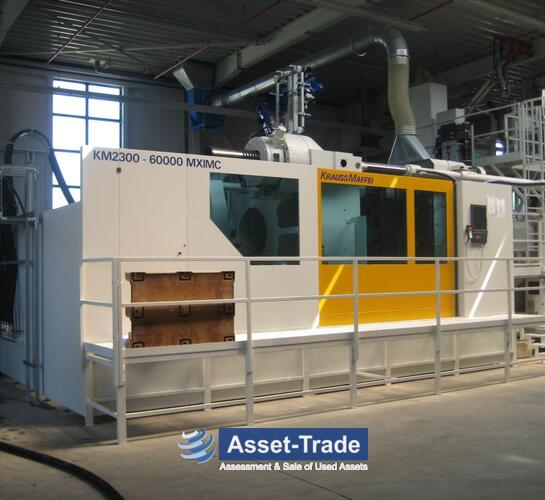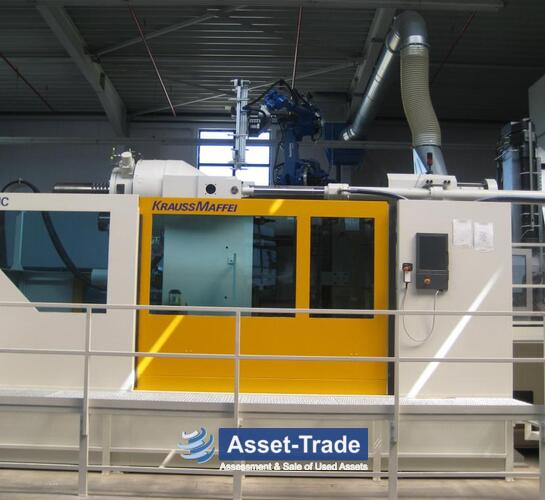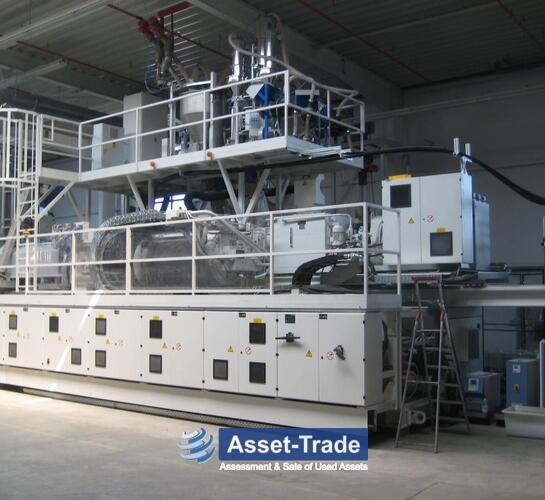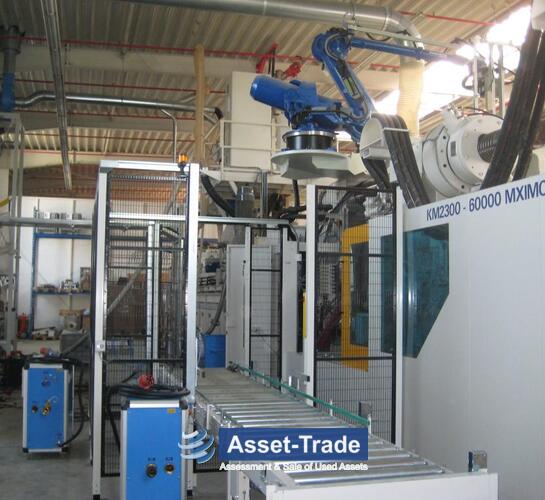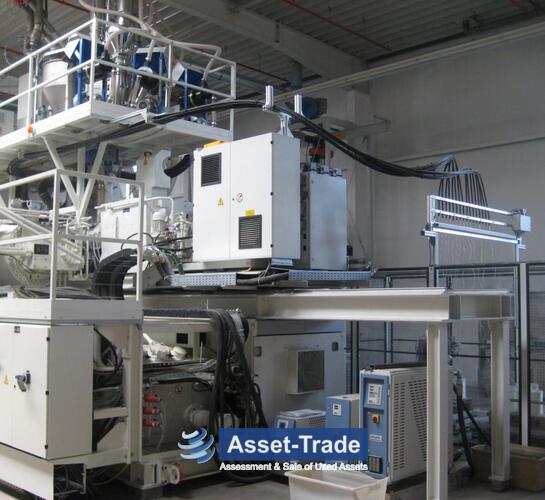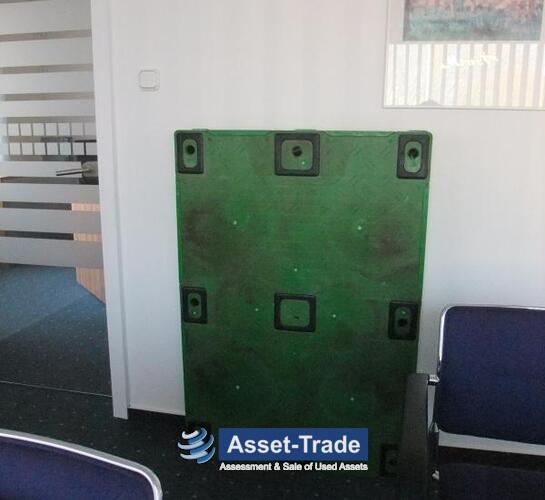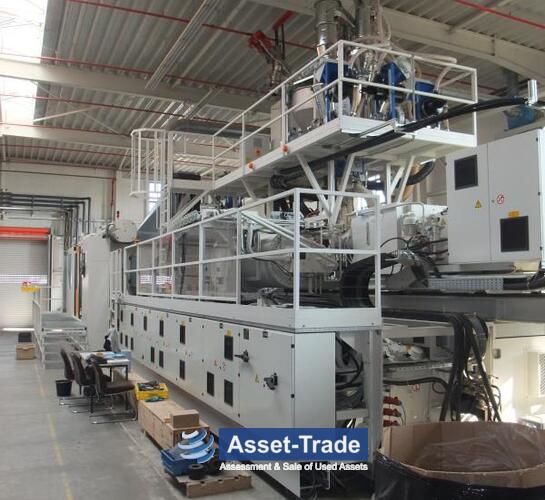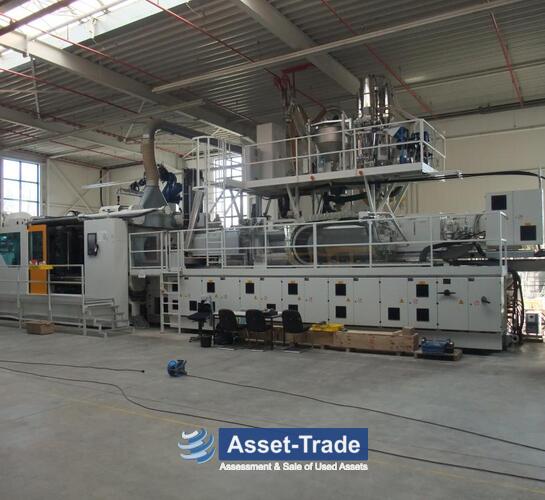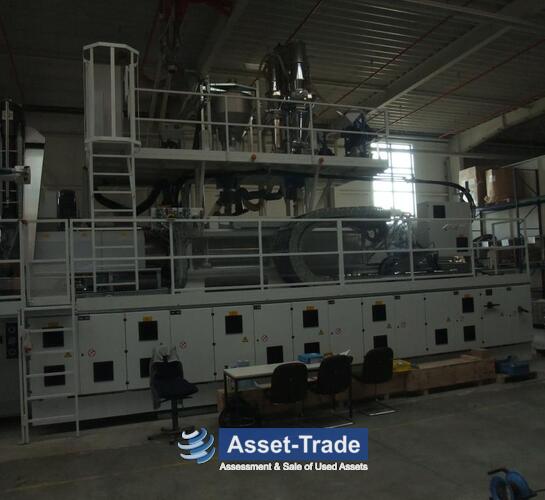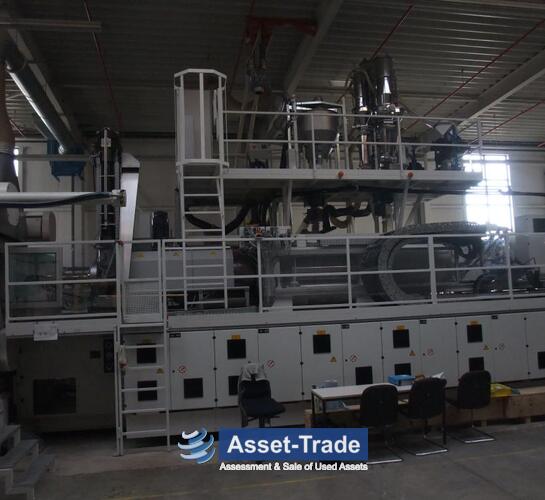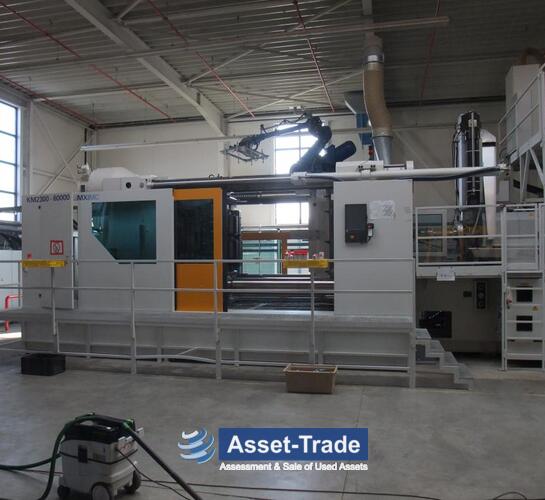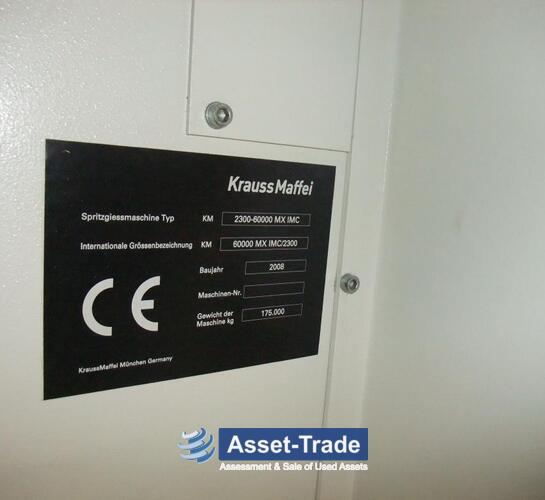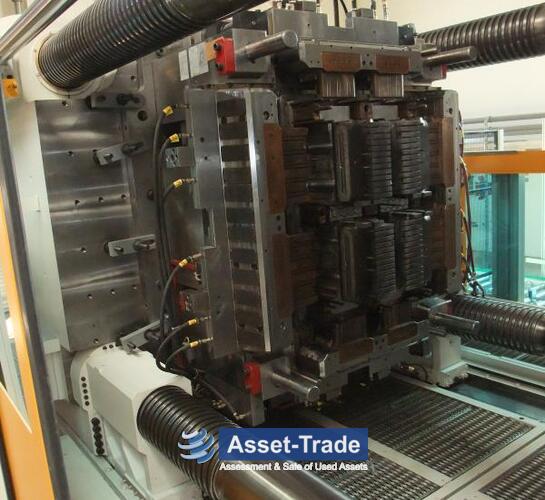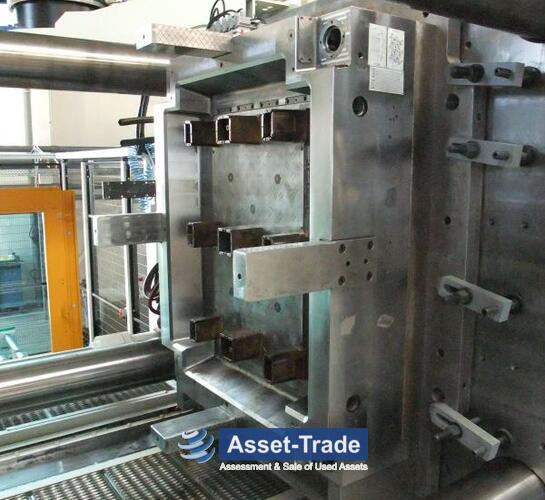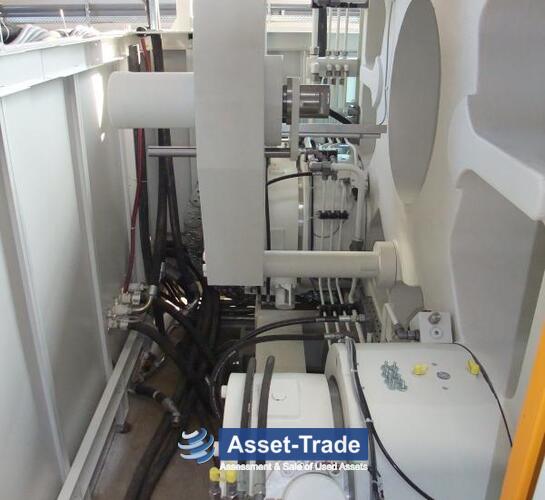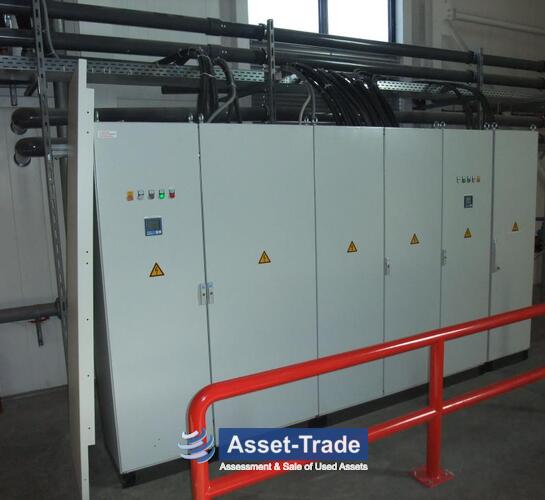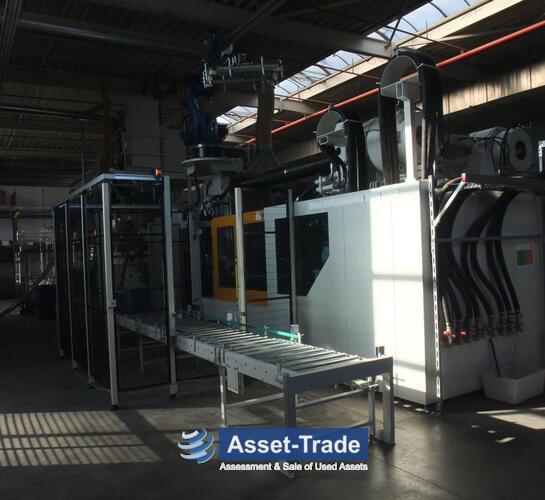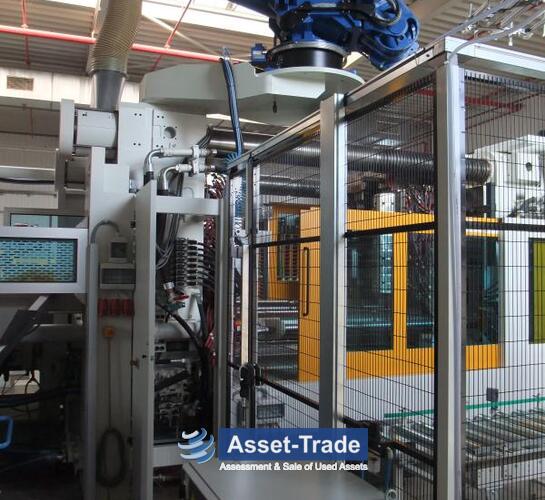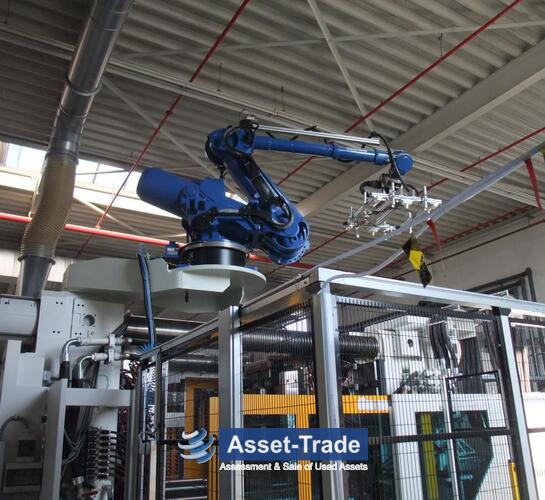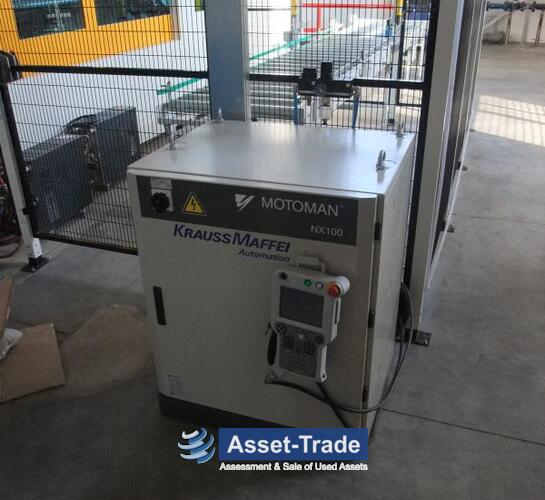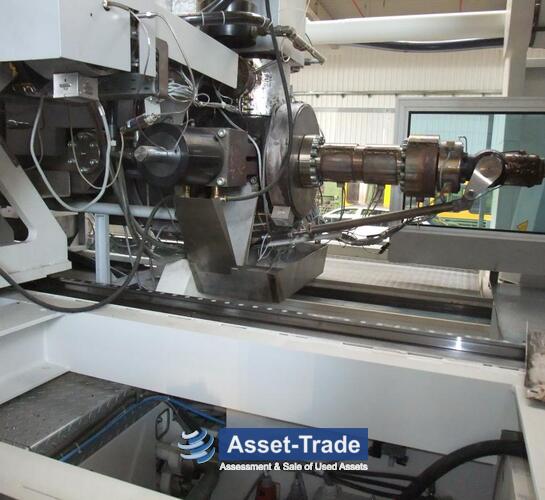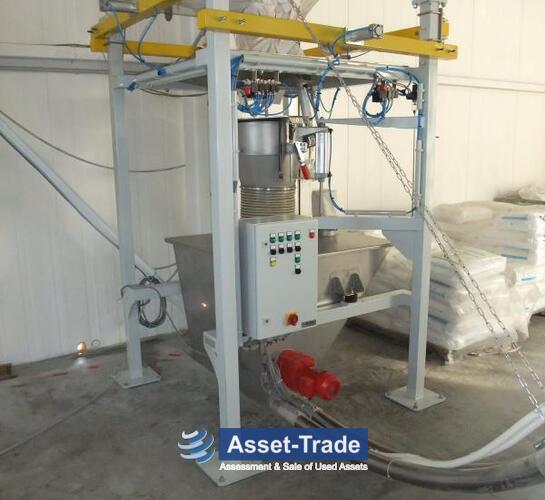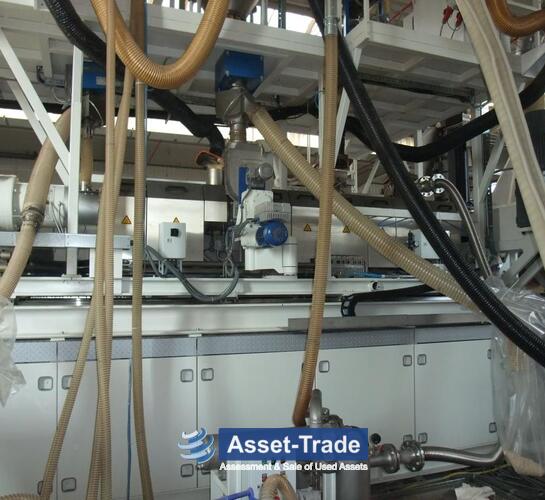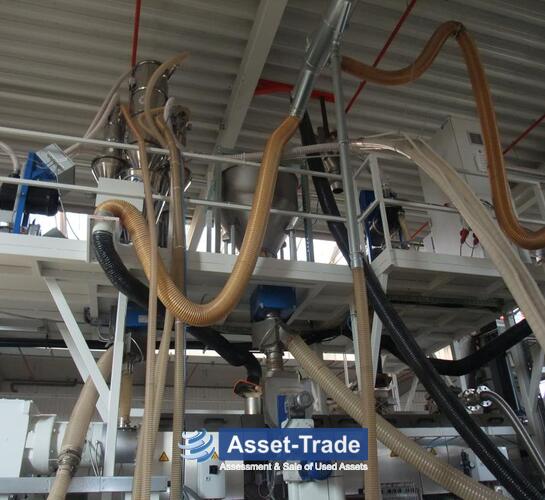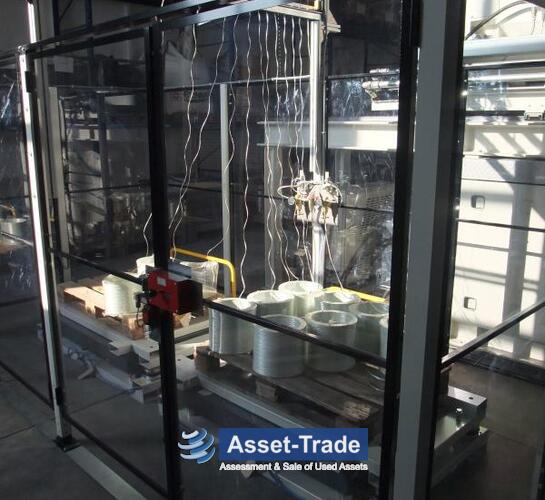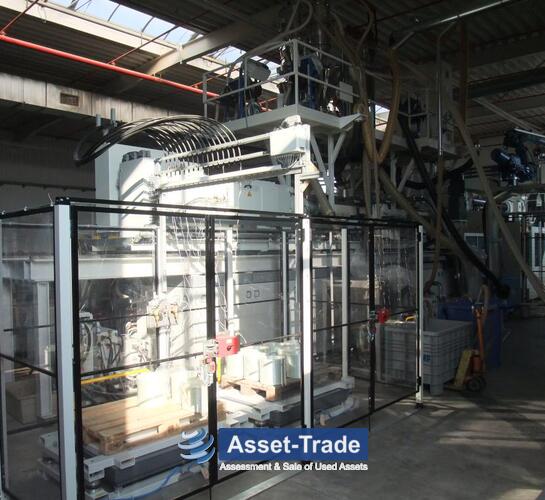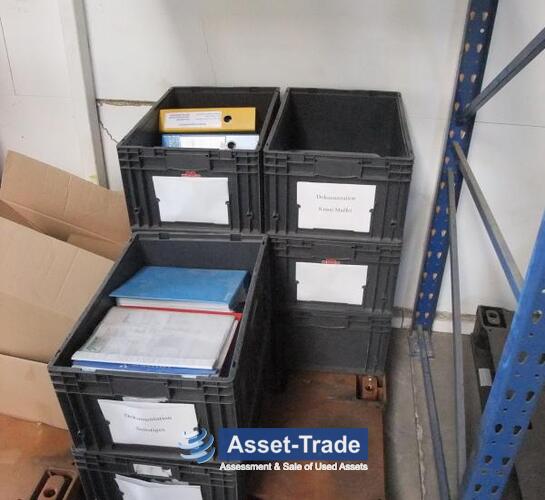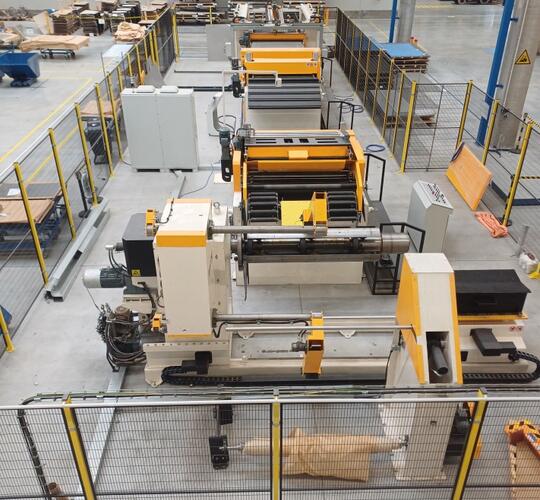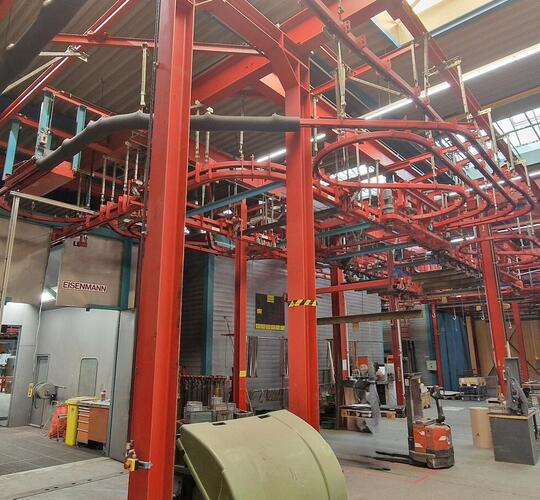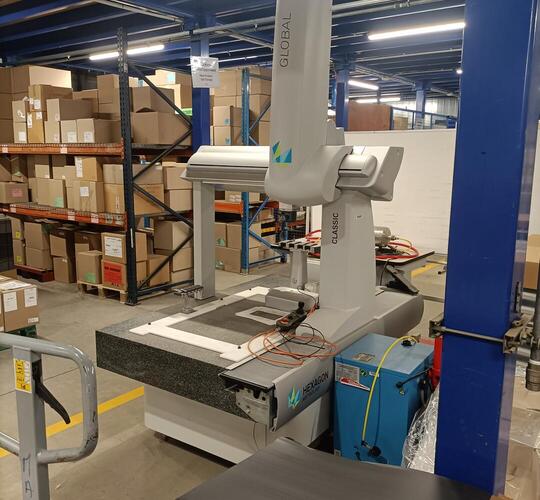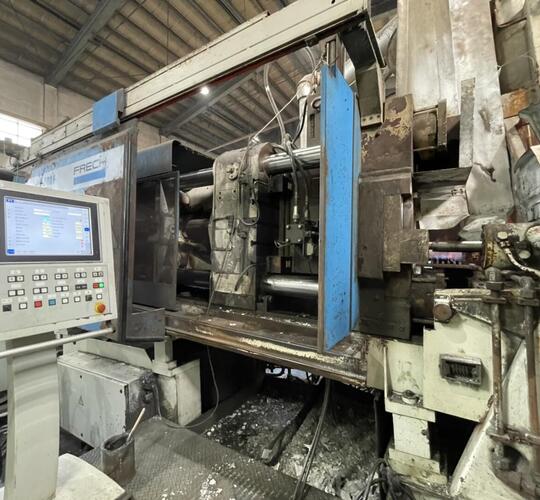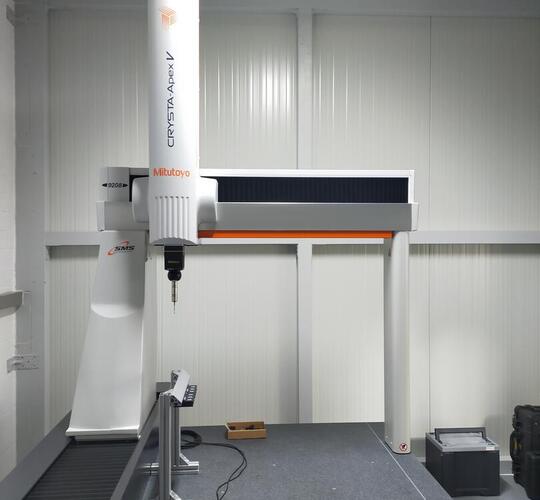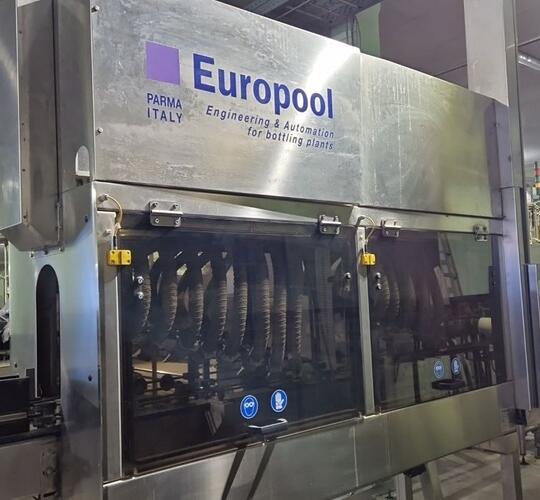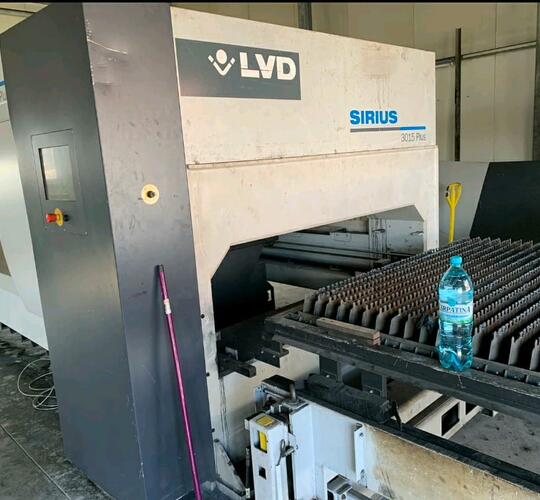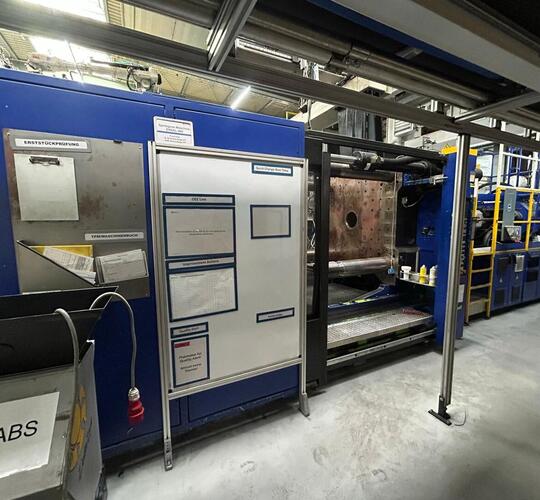This great KRAUSS MAFFEI - KM 2300 MX IMC - SP 60000 Injection Moulding Compounder is unfortunately already Sold.
Discover further Plastics Processing » Injection Molding Machines machinery, or Contact us for further help.
Description:
This great KRAUSS MAFFEI - KM 2300 MX IMC - SP 60000 Injection Moulding Compounder is unfortunately already Sold.
Discover further Plastics Processing » Injection Molding Machines machinery, or Contact us for further help.
KRAUSS MAFFEI - KM 2300 MX IMC SP 60000 - Injection Moulding Compounder
The Injection Moulding Compounder (IMC), developed by KraussMaffei, combines the benefits of injection moulding and extrusion. The manufacture of pallets from filled HDPE illustrates the potential savings achievable with this technology.
Only 170 hrs of operation. Your perfect pallet moulding machine.
Clamping Unit
- Clamping force - 23000 kN
- Mould opening force - 1610 kN
- Size of mould platens (HxV) 2840 x 2400 mm
- Clearance between tie bar (HxV) 2000 x 1600 mm
- Mould opening stroke (max.) - 3000 mm
- Mould height min. - max. 800 – 1800 mm
- Max. daylight - 3800 mm
- Hydraulic ejector stroke - 400 mm
- Ejector force forward/backward - 400 / 200 kN
- Maximum mould weight - 62000 kg
Injection Unit
- Working capacity - 60000 - International classification calculated as max. stroke volume (cm3) x max. injection pressure (bar) divided by 1000
- Injection piston diameter- 220 - 240 mm
- Injection pressure - 1620 - 1361 bar
- Stroke volume - 38013 - 45238 cm3
- Shot weight, PP - 28129 - 33476 g
- Shot weight, PP GF30 - 36112 - 42976 g
- Injection rate - 3064 - 3646 cm3/s
Melt buffer
- Buffer volume max. - 26557 cm3
- Share of total shot weight max. - 59 %
Electric and Hydraulic Equipment
- Nominal capacity of pump motor - 360 kW
- Dry cycles number - 527 1/h As per Euromap 6
- Reservoir capacity - 5600 ltr.
- Heating capacity without extruder - 188 kW
Dimensions and Weights (l x w x h) - 17,4 x 4,2 x 5,8
The injection moulding compounder (IMC) stands for innovation and a good return on your investment. It's groundbreaking engineering, successfully teaming up a continuous extrusion process with a discontinuous injection moulding process. It stands for a high return on investment - due to generally superior product properties and substantial savings in raw material costs. KraussMaffei's IMC was the first time compounding and injection moulding had been successfully yoked in a one-stage process. Since the IMC was showcased at the K1998, KraussMaffei has continued to develop and refine the process and to adapt it to new application areas.
The injection moulding compounder offers striking cost and quality advantages. It cuts the cost of materials, improves product quality, delivers high plasticizing performance, and by opening the way to customized compounding, it increases production flexibility and opens up new application areas.
The Injection Moulding Compounder with its integrated twin-screw extruder achieves hugely increased throughput because plasticizing takes place continuously. The biggest advantage over traditional injection moulding machines is that processors can do their own compounding, ie, start with the basic HDPE and then add fibres, fillers or masterbatch during processing. Since it’s much cheaper to buy individual raw materials than ready-made compounds, this has a dramatic impact on costs. Using an IMC to make pallets slashes costs relative to conventional production methods – among other things, because it’s possible to raise the proportion of wood flour, rice husks or other fillers to over 50%. Low-cost materials can replace a high proportion of the high-cost polymer. Further savings result from shorter throughput times due to
the lower-temperature melt requiring less cooling.
Plastic pallets last 15 times longer
Cost-for-cost, a filled HDPE pallet made in this way lasts 15 times as long as a wooden pallet. This cuts the ratio of waste to pallets in circulation. Plastic pallets are immune to fungal infection and, unlike many wooden counterparts, they are not subject to import restrictions and will also meet high hygiene requirements.
If the pallets are made using recycled materials, a degassing stage removes the volatiles from the material during extrusion. Additionally, injection moulding compounding also offers a whole swathe of additional design possibilities that cannot be achieved with wood. There’s also the option of making complex structures that look like wood.

